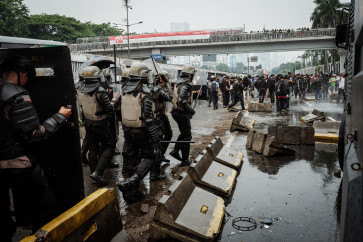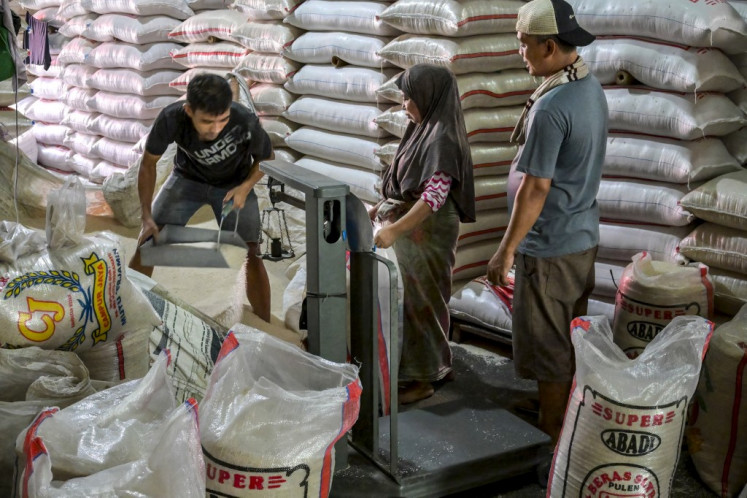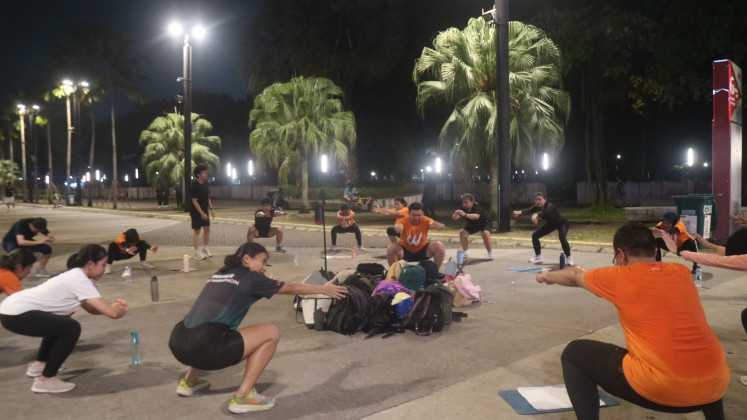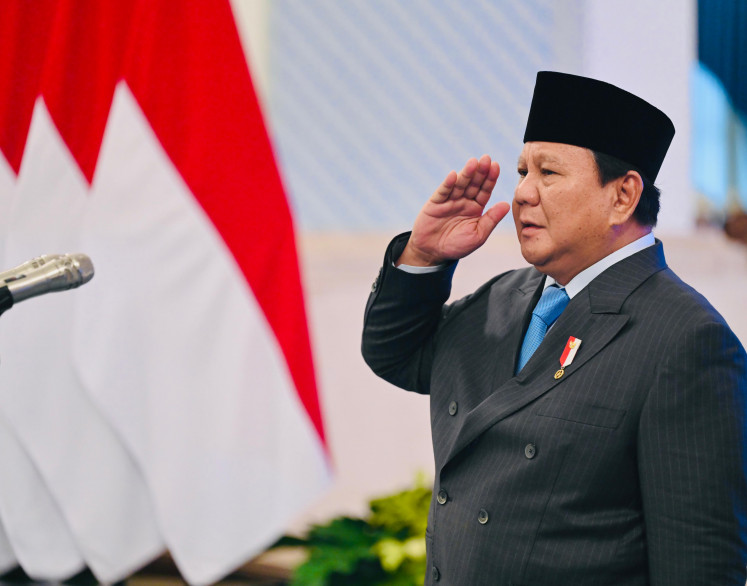Popular Reads
Top Results
Can't find what you're looking for?
View all search resultsPopular Reads
Top Results
Can't find what you're looking for?
View all search resultsHoax busters join hands to fight rampant fake news
Social media activist Septiaji Eko Nugroho is among those who have grown irritated over the spread of hoaxes forwarded by contacts in messaging app groups
Change text size
Gift Premium Articles
to Anyone
S
ocial media activist Septiaji Eko Nugroho is among those who have grown irritated over the spread of hoaxes forwarded by contacts in messaging app groups.
Septiaji said he was familiar with the adverse impacts of hoaxes and fake news, which are responsible for driving political polarization, on social media.
He has seen friends, colleagues and others exit chat groups over the spread of incendiary rumors. “The spread of hoaxes on social media is out of control. Friendships can be ruined, families can become disharmonious and some friends at work can grow uncomfortable with each other,” he said
Septiaji has decided to launch a movement called Masyarakat Indonesia Anti Hoax (Anti-Hoax Indonesian citizens).
The movement merges four social media communities active in countering hoaxes by providing research-based clarification on suspicious posts circulating online reported by netizens to their respective web pages. The four said communities are Forum Anti Fitnah, Hasut and Hoax (FAFHH), Indonesian Hoax Buster, Indonesian Hoaxes and Group Sekoci.
The group has garnered support from more than 20,000 netizens and at least 30 renowned figures from diverse backgrounds, ranging from academics to celebrities, who are worried about the impacts of fake news.
Among prominent figures to assume the role of “anti-hoax ambassador” for the group are cultural critic Goenawan Mohamad, filmmaker Nia Dinata, Muslim scholar Komarudin Hidayat and historian Azyumardi Azra.
The spread of hoaxes has been intensifying on social media ahead of the 2017 simultaneous regional elections. Seventy eight percent of the reports received daily by the anti-hoax communities are related to incendiary posts on politics.
Incendiary rumors and provocative statements against incumbent Jakarta Governor Basuki “Ahok” Tjahaja Purnama, who is a suspect in a blasphemy case, have also circulated heavily on social media in recent months.
It was reported that the screenshot of an altered headline with an anti-Muslim theme from an article originally published by kompas.com circulated on social media. Indonesian Internet Service Providers Association (APJII) data said 132.7 million people in the country had been exposed to the internet, representing half of Indonesia’s population. More than 90 percent of them claimed to be avid social media users.
Despite the large numbers, many citizens still lack digital media literacy and tend to read and shared suspicious information on social media even before they confirm the news on mainstream media or other reliable sources, Septiaji said.
“We will hold campaigns on media literacy that engage communities and mass organizations in the regions, so that they can share their knowledge with others,” he said.
Nia Dinata has called on the public to start confirming the information they receive through social media, such as WhatsApp and Instagram, through search engines before spreading them to others.
“We can carry out early detection as well. If we read information that raises suspicions or contradicts our nation’s values, this is a sign that we should seek confirmation,” activist Anita Wahid said.
Communications and Information Minister Rudiantara said he supported the movement,adding that his office would prioritize approaching and engaging civil communities to assist officials in raising awareness on the importance of digital literacy.
“We should focus on spreading knowledge instead of only drafting regulations and blocking [websites and accounts],” Rudiantara said.










